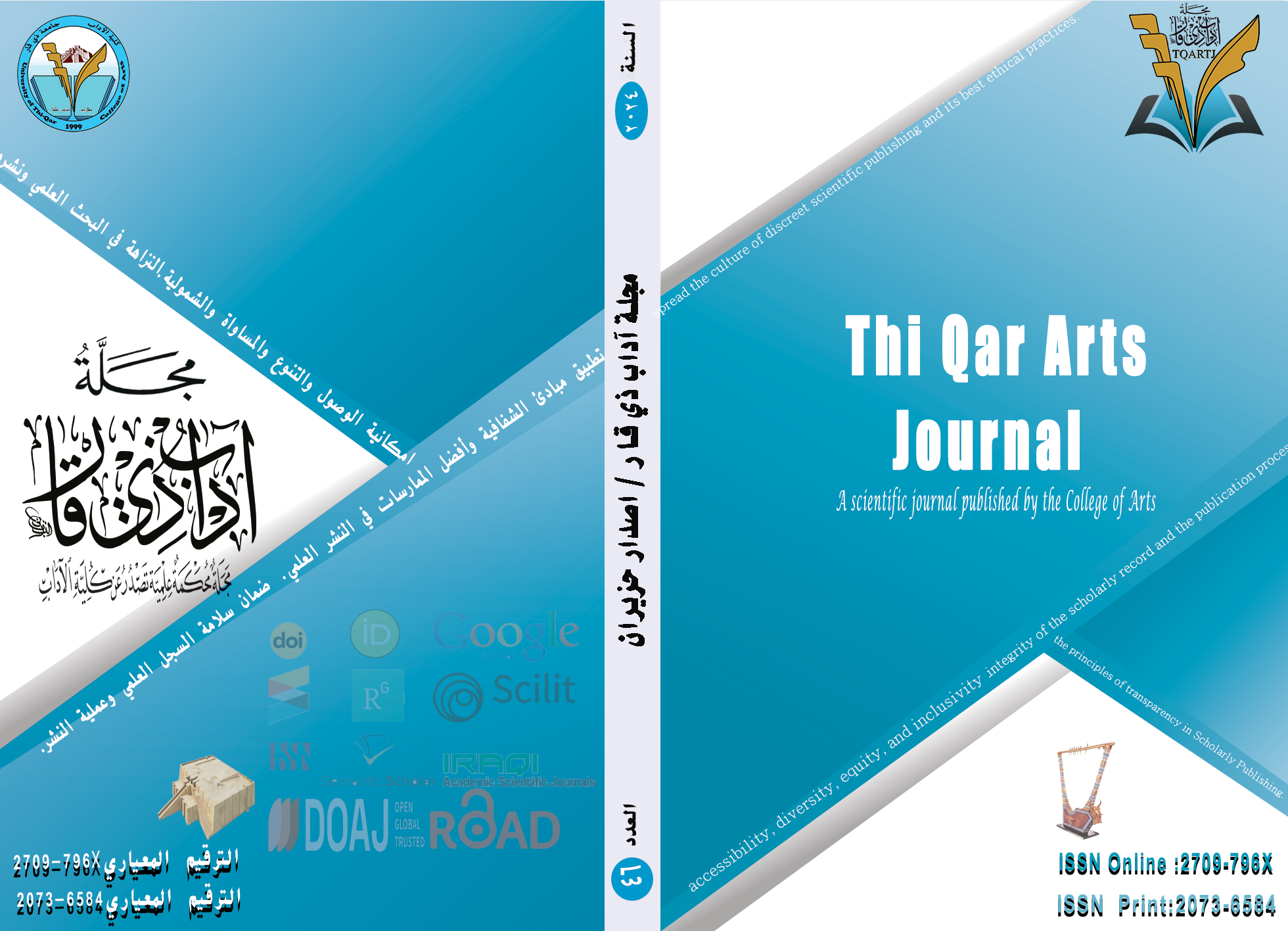Treaties of Peace in the Conquests of Persia: A Historical Reading
DOI:
https://doi.org/10.32792/tqartj.v6i46.622Keywords:
Peace Treaties, Tolerance and Leniency, Rights and Facilities, Religious Rituals.Abstract
The historical significance of the peace treaties concluded by the leaders of the Islamic armies with the chiefs and inhabitants of the cities of Persia lies in their high emphasis on how the Muslim armies dealt with the Persian inhabitants. The essence of these treaties was characterized by tolerance and leniency, which are core principles of the noble Islamic religion. These treaties are not only important historical documents but are also dated and witnessed by individuals. This research attempts to trace the historical and documentary importance of these treaties through three sections. The first section explains the meanings of covenant and peace in the Holy Quran and the Hadith of the Prophet. The second section discusses the rights and facilities granted by the Muslim conquerors to the inhabitants of these cities, including safety, protection of lives and property, and freedom to practice religious rituals. The third section addresses the duties and obligations of these inhabitants towards the Muslims, including paying the jizya (tax), providing assistance, and refraining from betrayal and treachery against the Muslims.
Downloads
References
First: - The Holy Quran
Second: - Primary Sources
Al-Bukhari: - Muhammad ibn Ismail, d. 256 AH/869 CE Sahih al-Bukhari, Dar al-Fikr (Beirut – 1988)
Al-Baghawi: - Al-Husayn ibn Mas’ud, d. 510 AH/1117 CE Tafsir al-Baghawi, Dar al-Ma’arifa (Beirut – no date)
Al-Tirmidhi: - Muhammad ibn Isa, d. 279 AH/892 CE Al-Sunan al-Kubra, edited by Abdul Wahhab Abdul Latif Dar al-Fikr (Beirut – 1983)
Al-Jurjani: - Ali ibn Muhammad, d. 816 AH/1413 CE Al-Ta’rifat, Dar al-Kutub (Beirut, 1983)
Ibn al-Jawzi: - Abdul Rahman ibn Ali, d. 597 AH/1200 CE Safwat al-Safwa (Alexandria – no date)
Al-Jawhari: - Ismail ibn Hammad, d. 393 AH/1003 CE Taj al-Lugha (Beirut – 1987)
Ibn Hajar: - Ahmad ibn Ali, d. 852 AH/1449 CE Al-Isaba fi Tamyiz al-Sahaba (Beirut – 1995)
Ibn Hayyan: - Muhammad al-Sabti, d. 354 AH/965 CE Sahih Ibn Hayyan (Beirut – 1995)
Al-Hilli: - Al-Hasan ibn Yusuf, d. 726 AH/1229 CE Tahrir al-Ahkam al-Shar’iyya (Qom – 1422 AH) Mukhtalif al-Shi’a (Qom – 1412 AH)
Abu Dawood: - Salman ibn Dawood, d. 204 AH/819 CE Al-Musnad (Beirut – no date)
Al-Zabidi: - Muhammad Murtada, d. 1205 AH/1791 CE Taj al-Arus (Kuwait – 2001 CE)
Al-Sahmi: - Hamza ibn Yusuf, d. 427 AH/1036 CE Tarikh Jurjan (Beirut – 1987)
Al-Suyuti: - Abdul Rahman ibn Abi Bakr, d. 911 AH/1506 CE Al-Jami’ al-Saghir (Beirut – 1994)
Al-Tabari: - Muhammad ibn Jarir, d. 310 AH/922 CE Tarikh al-Umam wa al-Muluk (Cairo – 1977)
Abu Ubaid: - Al-Qasim ibn Salam, d. 224 AH/838 CE Al-Ahwal, edited by Khalil Muhammad Harras Dar al-Fikr (Beirut – no date)
Ibn Abd al-Barr: - Yusuf ibn Abdullah, d. 463 AH/1070 CE Al-Isti’ab fi Ma’rifat al-Ashab Edited by Ali Muhammad and Adel Ahmed (Beirut – 2002 CE)
Al-Muttaqi al-Hindi: - Ali ibn Husam, d. 975 AH/1567 CE Kanz al-Ummal (Beirut – 1989)
Muslim: - Al-Hasan ibn al-Hajjaj, d. 261 AH/874 CE Sahih Muslim (Beirut – no date)
Ibn Manzur: - Jamal al-Din Muhammad, d. 292 AH/904 CE Lisan al-Arab (Qom – 1985)
Yaqut: - Shihab al-Din al-Hamawi, d. 626 AH/1229 CE Mu’jam al-Buldan (Beirut – 1995)
Third: - Secondary Sources:
Al-Burujirdi: - Hussein Jami’ Ahadith al-Shi’a, Al-Matba’a al-Ilmiyya (Qom – 1407 AH)
Ibn Ashur: - Muhammad al-Tahir Al-Tahrir wa al-Tanwir (Tunis -1984)
Downloads
Published
Issue
Section
Categories
License
Copyright (c) 2024 Dr. Fadhil Kadhim Sadiq

This work is licensed under a Creative Commons Attribution 4.0 International License.
The journal applies the license of CC BY (a Creative Commons Attribution International license). This license allows authors to keep ownership of the copyright of their papers. But this license permits any user to download, print out, extract, reuse, archive, and distribute the article, so long as appropriate credit is given to the authors and the source of the work. The license ensures that the article will be available as widely as possible and that the article can be included in any scientific archive.



















